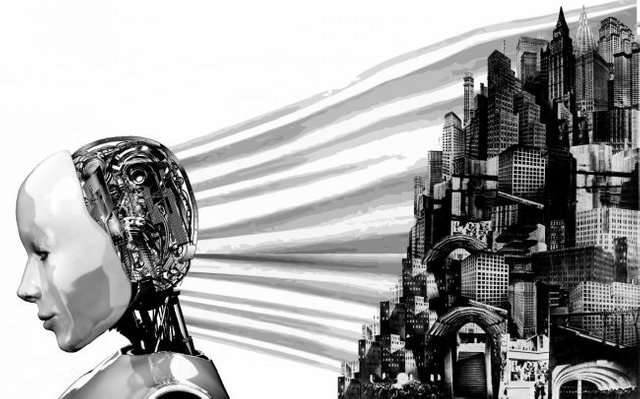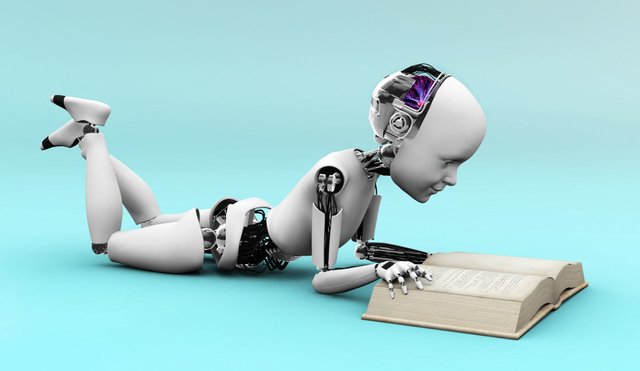AI will reach a new level in the new year
He can read lips and create new food recipes. He can beat anyone in chess and go. Every large technology company is trying to integrate it into your organization and business. And, it seems, every new application is obliged to state, that uses machine learning to varying degrees to make your life better. Artificial intelligence can without exaggeration be called the most discussed topic of the year. Revolution is at hand, and the most obvious question we should ask ourselves: what next?
This question was asked of James Hendler, Director, Rensselaer Institute for data exploration and applications, one of the developers of the semantic web. The problem, according to Handler, is that many people see an AI sort of "Terminator" or a utopian dream, completely excluding humanity from the equation.
"People want to paint this technology white and black colors, he explains. — But the best people deal with shades of gray."
And before moving on to a discussion on the future of artificial intelligence, the Handler gives a slightly political slogan: we are humans and AI are strong together.
"I think in the short term I most admire in AI is how easy it was to use programmers. This is no longer the domain of specialists," says Hendler
Classes he currently teaches, on the topic of cognitive computing, AI, illustrate this point. Undergraduates doing projects like chatbots able to answer questions about the Harry Potter universe, after a few weeks. A few years ago such a feat would be a topic for a PhD thesis.
What has changed?
No longer need to build deep learning, computer vision or natural language components from scratch. Just download the package, open source and integrate it into its system, slightly changed. This is like playing with WordPress, although the Handler prefers to speak about the days of the birth of the Internet. In the early 1990s, with little understanding of HTML, you can create a website by installing a kind of pre-packaged code.
"Artificial intelligence was packaged usable way," says Hendler. "Enough to pick up the pieces and get to work without basic research what these components are."
In the short term, says Handler, it opens the game to players of all stripes.
"We are seeing a lot of innovation in small companies that use existing methods for deep learning, vision and language processing," he says. "Heavyweights — Microsoft, Google, Facebook — will be powerful to invest in this technology, but in new directions."
Meanwhile, in scientific and government circles continue to study the evolution associated with AI technologies. The handler gives the example of a driverless transport, first developed by universities like Stanford to win the DARPA Grand Challenge. Then Google modified this technology. Today, it seems that every car company on the planet deals with the withdrawal of self-driving cars on the road.
While there remains a need to develop new technologies of artificial intelligence to solve problems, Handler says that in the short term, the focus will be on various business cases that can be done with the use of existing tools.
"I think that kind of innovation to attract entrepreneurs and startups. A lot of them," says Hendler.
What can AI get from an ordinary user of the technology in 2017 and after? In this case, "more" means "less," as this technology works invisibly in the background. It will not be obvious to be able to buy and see the whole world in a different light.
Take, for example, Siri, the ubiquitous virtual assistant from Apple. Competence Siri when performing more complex tasks is constantly improving, but it still (and often) by default refers to searching the Internet. But one day in the near future, someone will ask Siri or equivalent "show the photo of the children with lunch today" — and the machine quickly and accurately will give the result.
In fact, the number of startups can boast of such achievements. The company Snips AI uses a method called "context aware" to create a kind of memory on the user mobile device, going through contacts, mail, calendar, photos, and more. The system learns what is important for the user in his life, acting as a single portal for all applications and information stored on the device.
"There is the fact that artificial intelligence has made the technology disappear so they you never have to worry," says Rand Hindi, CEO and founder of Snips.
Of course, this is all a problem of developed countries to technology disappeared. But the Handler believes that in the near future will unfold projects that will improve conditions in developing countries. In particular, he and others are working with IBM to provide literacy for a billion people in the next five years.
"Perhaps we will be able to significantly change the lives of countless people, especially in those countries where the literacy rate is currently low. It is here that people suddenly will see how technology is changing their lives as never before."
Inevitably, with the development of artificial intelligence, our world is waiting for coups and maybe even strike. For example, truck drivers who can remain without work in connection with the distribution of self-governing transport. However, there will be many jobs and, perhaps, the same people will be able to receive an income not lower, and may and above the previous level.




Nice post. Thank you for sharing! Cheers @konstantin
Thank you!
Np : )